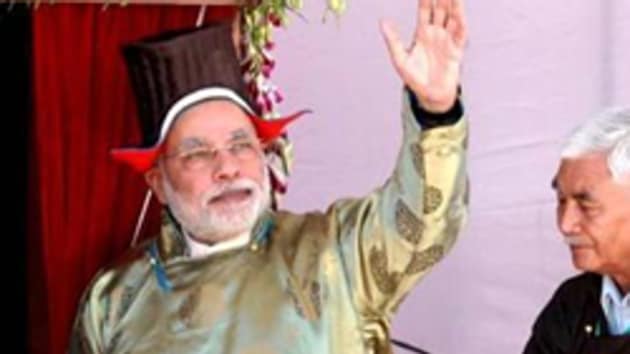Gonchas in Kargil: The State must not dictate sartorial choices
The district administration of Kargil wants all district officials to attend office in traditional attire on Mondays and Saturdays. Since when has it become the prerogative of the State to decide — and in some cases dictate — the sartorial choices of the people?
Governments and people in authority often have an odd way of functioning. Instead of serving and guiding the people, they choose the easy and retrograde way of imposing their ideas on them. Some do it in the name of morality, while some do it in the name of religion or culture and tradition. The latest to join this band is the district administration of Kargil.

The administration of Kargil wants all district officials to attend office in traditional attire (goncha/sulchak) on Mondays and Saturdays.
Read | Twice a week, wear traditional dress to work: Kargil district administration
Since when has it become the prerogative of the State to decide — and in some cases dictate — the sartorial choices of the people? This move smacks of the nanny State asserting itself.
In Kargil, this has been done in the name of “culture and tradition”. The deputy commissioner of Kargil in a circular has said that the decision was taken “considering the importance of the Ladakhi culture and tradition”. It would suggest that the state is the custodian of these issues and not the people who should be free to dress the way they want to.
There is a caveat though: For non-local officials it is not mandatory but “it will be highly appreciable” if they go traditional. The pressure such orders place on non-locals — which lead to clear divides in workplaces and biases against the perceived “other” — will be counterproductive.
Read | Dress code in college: Girls in Bhopal say no end to ‘school life’
That the Ladakh Autonomous Hill Development Council (LAHDC) along with the district administration is taking several measures to revive the culture and traditional identity of Kargil is commendable. The problem, however, is that in its effort to promote culture, the administration is armtwisting both the local and non-local officers who do not see any merit in this circular.
Hypothetically, even if this order is received positively by many people, why should it be made “compulsory”? What ones wears, and how he/she wears it, within permissible limits, is still the individuals right. Maybe it’s a sign of our times when there seems to be a general tilt towards “enforcing” a law rather than educating people and arriving at a consensus on the matter.
Read | Uniform dress code in MP govt schools from next session
It would be unfair to single out the Kargil administration on this. Such diktats are issued in many places in India and around the world. Many colleges across India, both private and government-run, have put in place dress codes on what students are allowed to wear. College authorities cite “discipline” as the reason behind such orders.
From the next academic session, school teachers in Madhya Pradesh will have to wear aprons with name tags while on duty. In October, the Knesset, Israel’s parliament, had issued a diktat banning skirts that were “too short”. Last month, after protests by staffers, the order was suspended. Then there are the many dress codes that religious institutions prescribe for its followers.
Read | Mumbai: St Xavier’s College bans ripped jeans on campus, says it ‘mocks the poor’
That the thoughts of our authorities are in sync with their global counterparts is nothing to be proud of.
It is a pointer to societal conditioning and outlook that often many of these “codes” are directed more at women whose sartorial choices are often seen as “against culture” and a distraction for men. Probably the late American jurist Louis D Brandeis had a point when he said: If we desire respect for the law, we must first make the law respectable.
@VijuCherian





